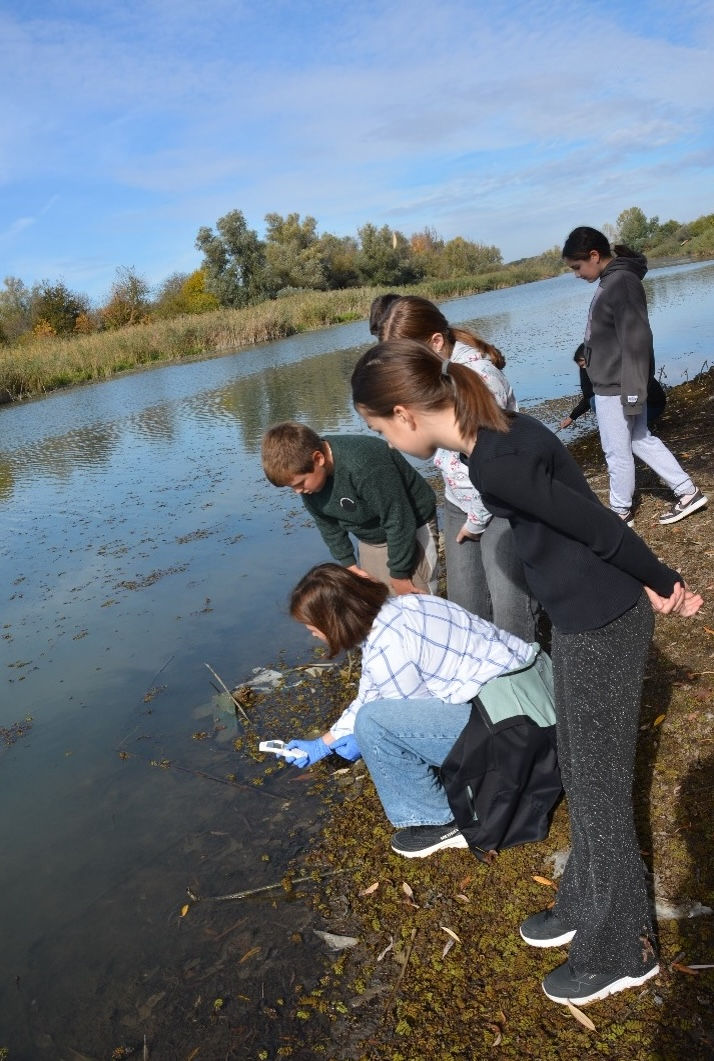Hello all and welcome!
- DANUBE4all

- Mar 30, 2023
- 3 min read
Updated: Apr 24, 2023
DANUBE4all is a new EU-funded research project. Over the next 5 years to 2027, a unique multi-disciplinary consortium of partners from 14 European countries will collaborate towards a Restoration Action Plan for the Danube River Basin. #DANUBE4all#eumissions
The project, coordinated by BOKU, University of Natural Resources and Applied Life Sciences in Vienna, aims to address the environmental challenges of improving the river basin’s ecological status and biodiversity, and improve ecosystem connectivity. It also aims to tackle associated ecosystem degradation, work towards flood and drought risk reduction,and enhance sediment continuity. DANUBE4all seeks to integrate action on these environmental concerns with social and economic wellbeing, embracing a science-to-people approach that actively integrates public interests and empowers Danube stakeholders including local communities, private sector enterprise, the public sector, and policy makers.
The 5-year project has received €8.9m in funding from Horizon Europe, the EU’s key funding programme for research and innovation.
Addressing Connectivity & Biodiversity Loss
Over one million barriers on Europe’s rivers have resulted in extensive loss of river connectivity, with 70-90% of Europe’s floodplain areas now ecologically degraded due to human modifications. Despite the EU’s ambitious policy framework, the implementation of fresh and transitional water ecosystem restoration is lagging due to lack of knowledge and wider awareness across society, but also because of a lack of integrated approaches between the relevant governance structures, business actors, and communities. Based on findings from the project’s extensive scientific research model, the DANUBE4all Action Plan will explore innovative restoration pathways for the whole of the river basin.
The overall focus of this ambitious project will be on delivering pathways to promote the improvement of the river’s ecological status, biodiversity, and ecosystem connectivity throughout the Upper, Middle and Lower river basins. It is intended that the development and implementation of innovative “win-win Nature Based Solutions” in tackling these issues will lead to an enhanced, free-flowing status of rivers and floodplains, flood and drought risk reduction and an enhancement of sediment and biota continuity.
A key strategy of the project will be to link these ecological concerns together with economic benefits. For instance, SMEs from part of the consortium, a move which contributes to the project’s socio-economic and financial aims by contributing to an economically profitable restoration of the Danube. This is a very important part of the project approach, as an economic business model for the river basin which, many stakeholders believe, has been missing up to now.
Integrated Approach
DANUBE4all takes a unique multi-sectoral approach to addressing and planning for the diverse set of environmental, social and economic challenges facing the Danube River Basin. Scientists will undertake innovative, restoration-focused demonstration activities at three sites in the Upper, Middle Danube and the Danube Delta.
From these outcomes, GIS and Citizen Science tools for upscaling these restoration actions will be provided via ten Synergy Sites to the wider Danube Basin. Outcomes will also be transferred to five Associated Regions via Replication Roadmaps for restoration action.
Uniquely to the project, €1 million in funding will be contracted to local actors and SMEs in three of the partner countries dealing with design and construction of Nature Based Solution (NBS) restoration measures, monitoring and community involvement. By closely interacting with the consortium it is intended that this knowledge will directly contribute to an optimisation of the projects findings and their implementation in more sustainable and economically interesting ways.
DANUBE4all is funded by Horizon Europe and will run from January 2023 – January 2028.







